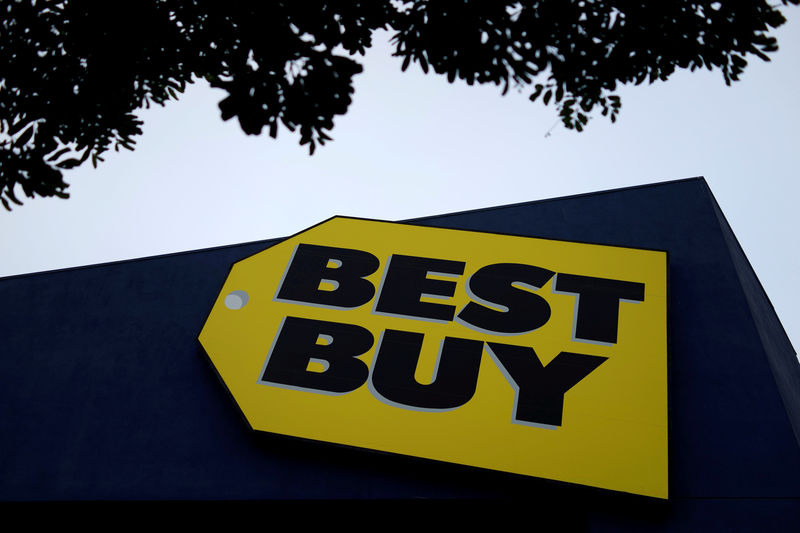Asia FX cautious amid US govt shutdown; yen tumbles after Takaichi’s LDP win
Matthew Bilunas, the Senior Executive Vice President and Chief Financial Officer of Best Buy Co. Inc. (NYSE:BBY), recently sold a significant portion of his holdings in the company. According to a filing with the Securities and Exchange Commission, Bilunas sold a total of 60,482 shares of Best Buy common stock over two transactions. The sale comes as the prominent specialty retailer, currently valued at $15.85 billion, maintains a GOOD financial health score according to InvestingPro analysis.
The first transaction occurred on March 21, where Bilunas sold 9,482 shares at a price of $72.647 per share. The second, larger transaction took place on March 24, involving 51,000 shares sold at $74.200 each. The combined total of these sales amounts to approximately $4.47 million. The stock, which has declined nearly 12% year-to-date, currently offers a robust 5.09% dividend yield, having maintained dividend payments for 23 consecutive years.
Following these transactions, Bilunas retains ownership of 55,856 shares in the company. It’s important to note that the first sale was conducted to cover tax obligations upon the vesting of restricted shares and was not a discretionary action. The second sale was part of a pre-established Rule 10b5-1 trading plan, set up in December 2024. While 18 analysts have recently revised their earnings expectations downward, InvestingPro analysis suggests the stock is currently undervalued, with comprehensive insights available in the Pro Research Report covering this and 1,400+ other top US stocks.
In other recent news, Best Buy has been the focus of various analyst reports following its fiscal fourth-quarter earnings announcement. DA Davidson reaffirmed its Buy rating with a $110 price target, citing stronger-than-expected sales and improved profit margins driven by its Membership, Marketplace, and Media initiatives. However, concerns about tariffs on international products remain a potential risk, which could affect future financial outcomes. UBS also maintained a Buy rating but adjusted its price target from $115 to $105, reflecting uncertainties around tariffs and the company’s guidance for improved sales as the year progresses. Despite these challenges, UBS noted positive elements in Best Buy’s quarterly performance, suggesting a favorable risk-reward balance for investors.
Truist Securities took a more cautious stance, lowering its price target from $95 to $81 and maintaining a Hold rating, emphasizing the risks associated with tariffs and their potential impact on earnings. The firm highlighted that tariffs on Chinese and Mexican imports could significantly affect Best Buy’s comparable store sales and earnings per share. Meanwhile, Loop Capital decreased its price target to $90 from $100 but reaffirmed a Buy rating. The firm pointed out that while the recent earnings exceeded expectations, the impact of tariffs remains a concern for future guidance. Analysts continue to monitor Best Buy’s strategies to mitigate these external challenges and maintain its growth trajectory.
This article was generated with the support of AI and reviewed by an editor. For more information see our T&C.
